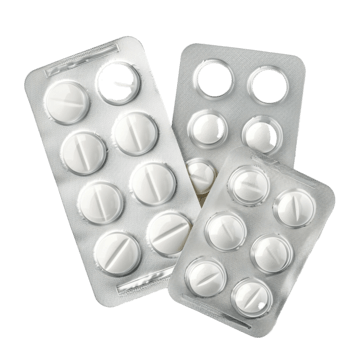Glipizide

Glipizide 5mg, 10mg, 20mg
Glipizide is an oral hypoglycemic agent belonging to the sulfonylurea class, primarily used in the management of type 2 diabetes mellitus. It works by stimulating the pancreas to release more insulin, thereby lowering blood sugar levels. Glipizide is often prescribed alongside diet and exercise to help control blood sugar levels in adults, and it may be used as part of a combination therapy with other diabetes medications for improved glycemic control.
Order NowDescription
Glipizide is an oral medication that belongs to the class of drugs called sulfonylureas. It is primarily used to manage blood sugar levels in individuals with type 2 diabetes. Glipizide works by stimulating the pancreas to release more insulin, which helps lower blood glucose levels after meals.
Uses / Indications
- Type 2 diabetes mellitus, as part of a comprehensive treatment plan
- Management of blood sugar levels alongside diet and exercise
- May be used in combination with other antidiabetic medications
Dosage and Administration
Adults:
Initial dose typically starts at 5 mg taken 30 minutes before the first meal of the day. The dose may be adjusted based on blood sugar response, usually not exceeding 20 mg per day.
Note: Dosage may vary based on individual medical condition and physician recommendations.
How It Works (Mechanism of Action)
Glipizide enhances insulin secretion from the beta cells of the pancreas by blocking ATP-sensitive potassium channels. This action leads to depolarization of the cell membrane, resulting in the influx of calcium ions, which then stimulates the release of insulin, lowering blood glucose levels effectively.
Side Effects
Common side effects:
- Hypoglycemia (low blood sugar)
- Nausea or vomiting
- Dizziness
- Weight gain
Rare/serious side effects:
- Severe allergic reactions (rash, itching, swelling)
- Liver dysfunction or jaundice
- Severe hypoglycemia
Contact your healthcare provider if you experience serious side effects.
Precautions / Warnings
- Inform your doctor if you have kidney or liver disease, or a history of alcohol abuse
- Use caution when driving or operating machinery until you know how Glipizide affects you
- Monitor blood sugar levels regularly to avoid hypoglycemia
Drug Interactions
May interact with:
- Other antidiabetic medications
- Medications that can cause hypoglycemia (e.g., some antibiotics, antifungals)
- Beta-blockers (may mask symptoms of low blood sugar)
- Certain medications affecting liver enzymes
Always inform your healthcare provider about any other medications or supplements you are taking.
Storage Instructions
- Store at room temperature (20°C–25°C / 68°F–77°F)
- Protect from moisture and heat; keep in a tightly closed container
- Keep out of reach of children
Missed Dose / Overdose
Missed a dose?
Take it as soon as you remember. If it’s close to your next scheduled dose, skip the missed dose. Do not double up on doses.
Overdose symptoms:
- Severe hypoglycemia (confusion, dizziness, blurred vision)
- Rapid heartbeat
- Sweating or shakiness
- Nausea or vomiting
Seek emergency medical help if an overdose is suspected.
Contraindications
- Allergy to Glipizide or other sulfonylureas
- Diabetic ketoacidosis or type 1 diabetes
- Pregnant or breastfeeding (consult your doctor)
Brand Names / Alternatives
- Glucotrol
- Glucotrol XL
- Generic name: Glipizide

